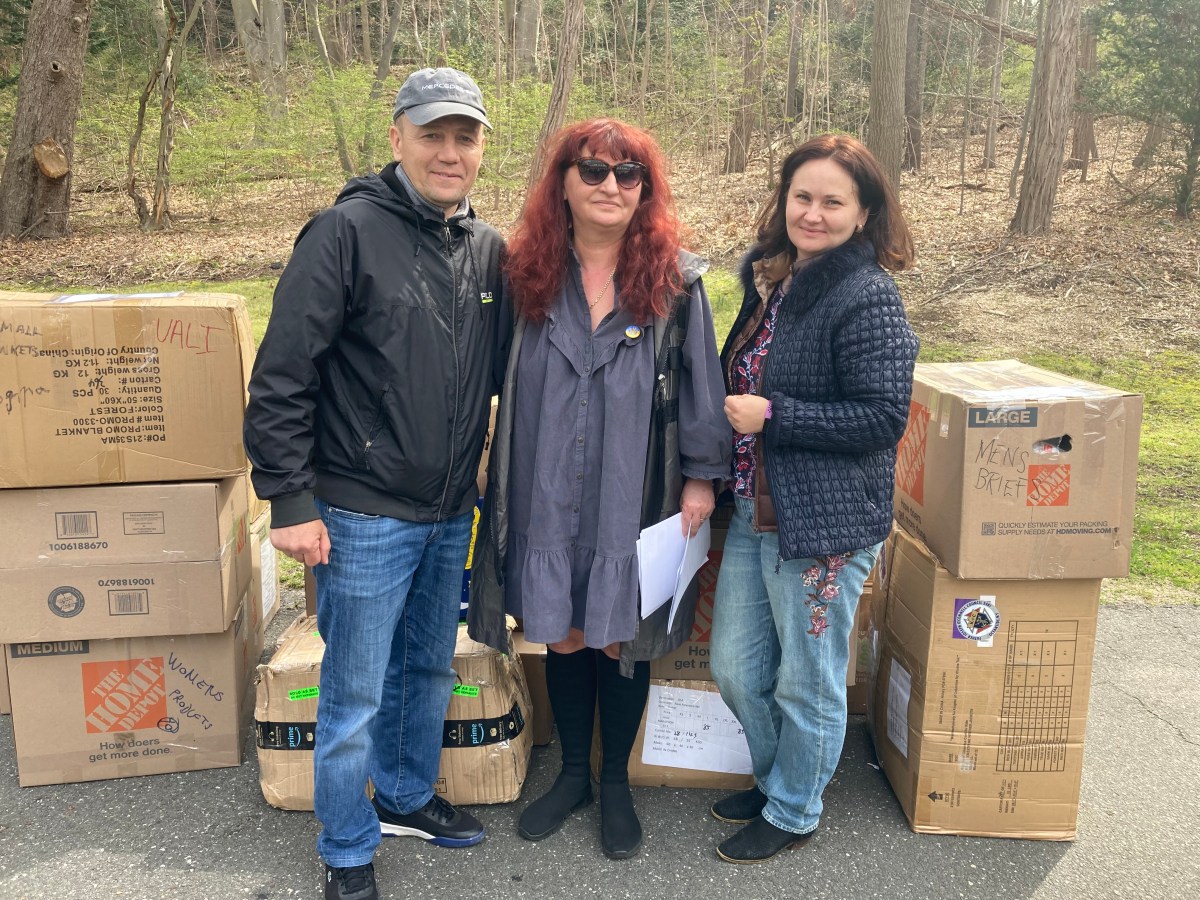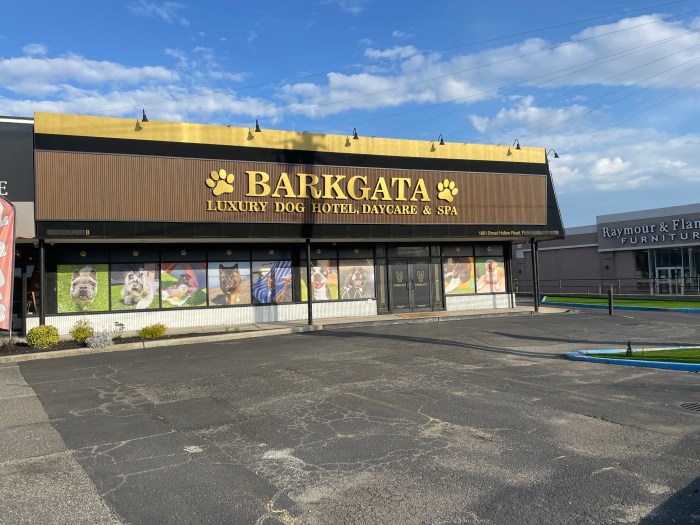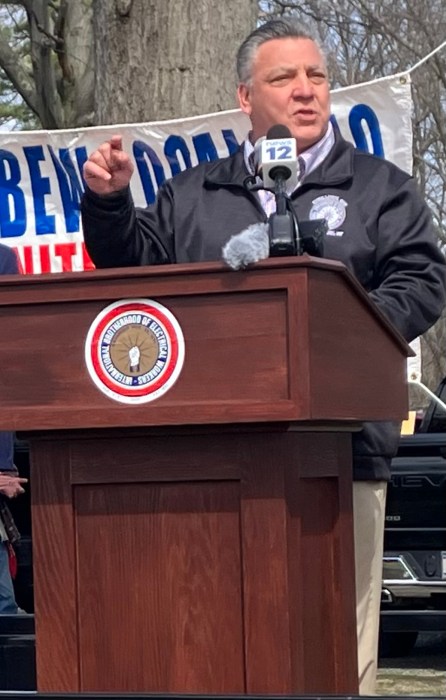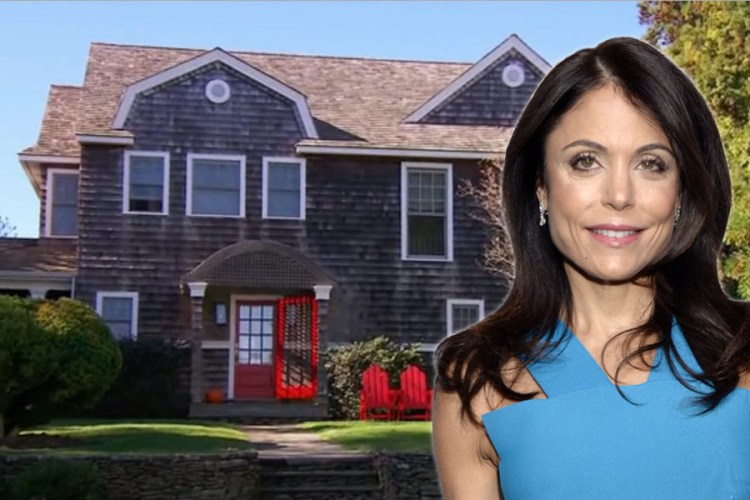For Yuriy Koziy, who owns Massapequa-based construction company Quality Touch Home Improvement, the war in Ukraine hit home in many ways. He flew back to Ukraine to help.
“When the war started, the second day, I left for Ukraine. I stopped my business. I spoke to my clients and explained the situation,” Koziy said. “I had projects going on. I stopped for three weeks. I was there for three weeks.”
He returned to his hometown of Ternopil, bringing money and offering to help in any way he could, including offering to serve in the territorial guard. Since he had no military training, he was told he wouldn’t be asked to serve in the guard. Nevertheless, he spent time helping, even manning a checkpoint with an AK-47.
Photos on other Ukrainian-Americans’ cell phones show teenagers wearing shin guards who look like they are heading off to play soccer. They are on their way to be equipped for and join the war.
“They wanted me to go back to the United States, establish logistics and help them with things they need,” Koziy said on April 18 as he helped ship supplies to Ukraine at St. Josaphat’s Monastery in Glen Cove.
For Koziy and many of the more than 1 million Ukrainians across the United States, the war has been anything but business as usual. Oleh Dekajlo, Long Island chapter president for the Ukrainian Congress Committee of America, said Ukrainians on Long Island are working more to help Ukraine and less on their own business.
“I’m not devoting as much time to my practice,” Dekajlo, an attorney, said. “I’ve been focusing an inordinate amount of time organizing fundraisers, doing public appearances to dispel false rumors, stories and narratives.”
Dekajlo said less than 10 percent of his clients are Ukrainian, but his clients have been sympathetic to his concerns and the cause of protecting Ukraine. Some Long Island businesses cater to Ukrainians, such as the Pierożek Deli in Copiague, which provides Polish and Ukrainian foods.
And there has been a backlash against Russian companies and products. In Shorewood, Wisc., a store named Russian Food & Gifts (owned by a Ukrainian) renamed itself European Food & Gifts.
“A lot of liquor stores have refused to sell or poured out vodkas made in or owned by Russian individuals or companies,” Dekajlo said. “Stolichnaya was started as a Russian vodka company. They’re trying to distance themselves from their original Russian roots.”
In Manhattan, Veselka, a Ukrainian restaurant, has been busier than ever, as customers eat pierogies (5,000 a day), borscht, latkes, and potato pancakes. Thousands of Ukrainian flags adorn windows and lawns throughout the United States as symbolic shows of support, in addition to the one in Vaselka’s windows.
“People are coming and eating in droves. They ask questions about what’s happening,” said Jason Birchard, Veselka’s owner, who is an American of Ukrainian heritage. “People are sympathizing, commiserating, supporting. I started several campaigns. All the sales of my Ukrainian borscht since the first day of the war. What better dish to give back?”
He said about $125,000 in Borscht sales are earmarked for Ukrainian relief efforts and Veselka has been collecting items that are taken to a local church and shipped to Ukraine. “Ukrainian employees convinced me to start an in-kind donation drive,” Birchard said, noting half his staff is Ukrainian. “We’re collecting items.”
Marie Ircha-Young of Port Washington, a Ukrainian-American, said Ukraine is experiencing shortages as workers fight the war. “All the men who are in manufacturing have to fight,” she said. “If they got any supplies from eastern Ukraine, that supply is done.”
Long Islanders are helping to battle shortages by shipping objects, often first to Poland, and eventually to Ukraine. “A million stores in Ukraine can’t get anything,” said Halyna Fenchenko, head of the Long Island chapter of the Organization for the Defense of Four Freedoms for Ukraine. “They were supposed to bring it from the east and the east is destroyed.”
Dianna Radoslovich, an American of Polish heritage, stood surrounded by items destined for Ukraine, including a hat lining that was heading back home. “It turns out it’s made by a company in Ukraine,” Radoslovich said. “It fits under military helmets.”
A representative of the company in Ukraine, she said, indicated they had suspended production. “They’re all in the reserves,” Radoslovich added. “Somebody here donated it.”
Lt. William Patsakos, a Greek-American firefighter with the New York City Fire Department, said firefighters were using their skills to help. “We’re here to do all the logistics, carry the supplies, truck the supplies to a Ukrainian shipping company in New Jersey,” he said at the St. Josaphat’s Monastery.
Others helping ship items said there’s demand, even if items are still flowing into Ukraine. “We need more equipment than what’s being delivered,” said Jolanda Jacques-Giuffre of East Meadow, a Polish-American helping to ship items.
Meanwhile, Koziy has raised money and helped buy bulletproof vests, helmets, medicine and first aid. “We just sent three packages to Ukraine last night,” he said. “We sent them to Warsaw, Poland, on a plane. They’re going to Ukraine.”
He said he postponed a project slated to start Feb. 25, but has completed it and now helps Ukraine and leads his company. “We just finished this project after I came back,” Koziy said. “It’s done. We’re doing another project in Merrick.”
Meanwhile, in the East Village, diners arrive, asking the staff for updates, inquiring whether their families are all right back in Ukraine. “Thankfully, everybody so far has been safe,” Birchard said of his staff’s families, although many other lives have been lost. “Nobody knows what the future will hold.”
For more business coverage visit longislandpress.com/category/business
Sign up for Long Island Press’ email newsletters here. Sign up for home delivery of Long Island Press here. Sign up for discounts by becoming a Long Island Press community partner here.


























